Webster’s Dictionary defines transparency as the quality or state of being transparent. Okay, what does transparent mean then? Several different definitions include “free from pretense or deceit,” “easily detected or seen through,” “readily understood,” and “characterized by visibility or accessibility of information, especially concerning business practices.”
I think we meet all the definitions of transparency at your electric cooperative. For starters, we definitely have been free of deceit. People sometimes don’t like our positions or policies, but they have been and will continue to be clear and honestly open.
A great example has been my position on generation resources over the years. As I have written about the need for coal, nuclear, natural gas, solar, and wind to work together, the reason—affordable electric rates—has always been easy to detect and readily understood.
I believe we have excelled at the accessibility of information regarding our business practices. We have answered questions in members’ homes, before crowds of members at our Annual Meeting, at meetings of special interest groups across the region, on social media, and via the blog on our website.
I have never expected everyone to agree with our practices, positions, or policies. I’m okay talking with people who don’t agree with me. I have never ducked a hard question or a difficult conversation. Every decision we make at your cooperative comes with realizing that it will have to be explained openly and honestly. It is simply less stressful to operate with this mindset. Being transparent is a great way to get a good night’s sleep.
Members often address the board directly at our monthly meetings. We sometimes get accused of not being transparent when members are not allowed to stay and observe the entire meeting. How can we claim to be transparent if we don’t let people witness our debates and deliberations in the board meetings?
For me, the answer is simple. It has been my experience that those who want to sit in a meeting have a singular agenda. I have watched them flood the rooms of other meetings across our region that do allow a public gallery. I have watched the board debate in these rooms change as pressure from the audience is exerted.
Governance by intimidation is not good governance. A democratically elected board should be free to have an open and honest discussion without criticism from a crowd that is not responsible for each member’s good. When I look at the track record of decisions made by your board over my 18 years at the cooperative, I believe this practice has worked very well.
Being in the room is not the definition of transparency. There is only a lack of transparency if board members are unwilling to talk to members after a decision. There is only a lack of transparency if I am not willing to sit down with members and explain the reasons behind the policy. Your board is easily accessible, and I am always willing to meet anyone wherever they like to discuss any detail on any issue. I actually enjoy those times.
Think about this—I could have written about a dozen other topics, but I chose this one. I chose to draw attention to this topic when I could have remained silent, and most would not have been aware. How transparent is that?



I always read your monthly letter where Cherryland electric’s goals and positions are. They are always easy to understand. This letter some’s it all up.
Tony,
Thank you for the great time at the annual meeting, ballgame and food! The wife and I are new to Cherryland but came from Great Lakes Energy so very familiar with co-op electric. I am a big baseball fan and retired HS coach. So we were very excited to participate in the festivities! I realize that baseball doesn’t appeal to everyone but hoping we can do the same next year! Keep up the good work and keep my power on!
By the way our install and and hook up went extremely well with no hiccups. Now hoping to get moved on to the new house.
Happy to be part of Cherryland. If not THE best utility around, certainly ONE of the best.
As a solar installer, I deal with Cherryland and Consumers Energy customers all the time. No question, Cherryland is by far the most reliable utility in the state. I talk people out of batteries and generators if they are on Cherryland. Vice versa if on Consumers, which is probably the most unreliable in the state next to DTE. Guess which utilities are “Public Service Commission” run and which are co-ops!
But the Cherryland board is far from transparent. Meeting minutes say “xyz issue was discussed”, “xyx person made comments”, etc. Never any substantive description of the issue or resolution. I’ve made comments at board meetings after being escorted through several locked doors and escorted out again after my five minutes. They allow no discussion of issues, will answer no questions on policy. You make your statement and are escorted out on the bell.
I’ve been on several boards and I understand that there are two ways to report meeting minutes. Cherryland has chosen the “no content” reporting system – say that something was discussed without trying to describe the discussion or reporting on how board members voted on an issue. It’s a very safe but not transparent system.